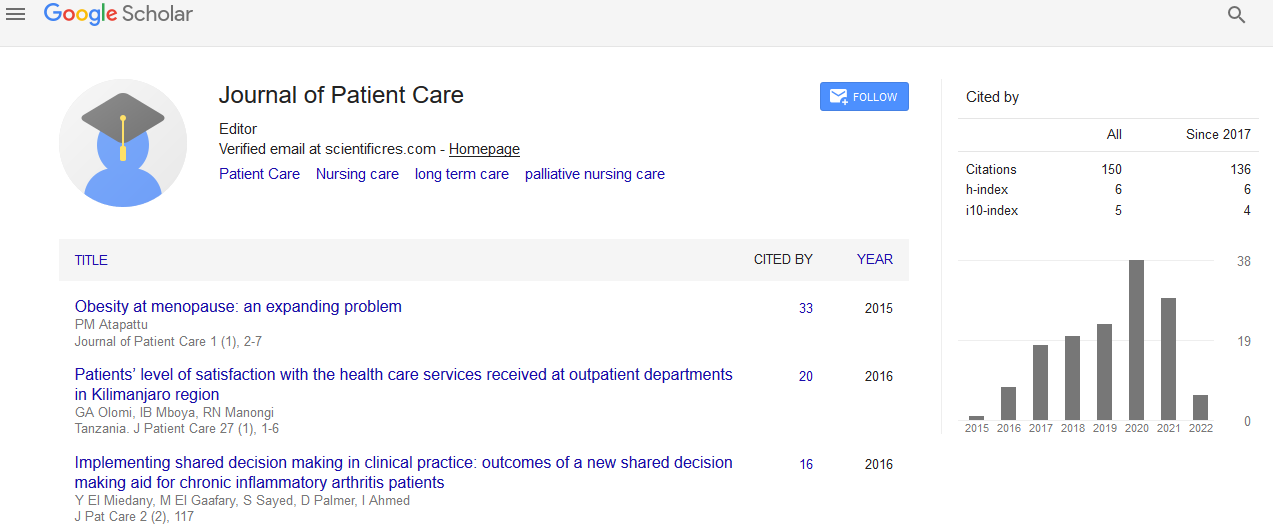Indexed In
- RefSeek
- Hamdard University
- EBSCO A-Z
- Publons
- Geneva Foundation for Medical Education and Research
- Euro Pub
- Google Scholar
Useful Links
Share This Page
Journal Flyer

Open Access Journals
- Agri and Aquaculture
- Biochemistry
- Bioinformatics & Systems Biology
- Business & Management
- Chemistry
- Clinical Sciences
- Engineering
- Food & Nutrition
- General Science
- Genetics & Molecular Biology
- Immunology & Microbiology
- Medical Sciences
- Neuroscience & Psychology
- Nursing & Health Care
- Pharmaceutical Sciences
Abstract
The Role of Palliative Care in the Management of Patients with Advanced Hepatocellular Carcinoma: A Single Institution Experience
Ayman A, Azza AH, Yasser K, Kakil R, Jonas F, Asma Mohammed AB and Zeinab MI
Introduction: Advanced HCC at initial presentation is as high as 15%. Those patients present with a complex group of symptoms that need to be addressed to improve their quality of life. Objective: Analyze the characteristics of patients with advanced HCC and determine their need for Supportive andPalliative care.
Methods: The current study included a retrospective review of all patients with advanced HCC accepted under the palliative care program at the NCCCR, Doha, Qatar from 2012 till 2015. A detailed descriptive analysis of those patients was performed.
Results: 40 patients constituted the cohort of this study. Ratio was 3:1. 75% of patients were above 60 years. Previous HBV or HCV was present in 95% of patients. Most common symptoms were fatigue, pain, anorexia, drowsiness, anxiety and depression. Incidence of advanced HCC was 25% of all HCC cases and 11% of all cases accepted under the palliative care program in the past 4 years. Ascites was present in 80% of patients, and hepatic encephalopathy in 82% of patients. Distant metastases (to bones and lungs) occurred in 45% of patients. The rest of patients (55%) had multifocal liver lesions. Median OS was 7 months. Majority of our patients (94%) died in the hospital.
Conclusion: Advanced HCC is as common as 25% at initial presentation. Patients with such diagnosis present with symptoms that would require early engagement with aspecialized palliative care program to address those symptoms. The aim of treatment for those groups of patients should be solely to improve their quality of life.

